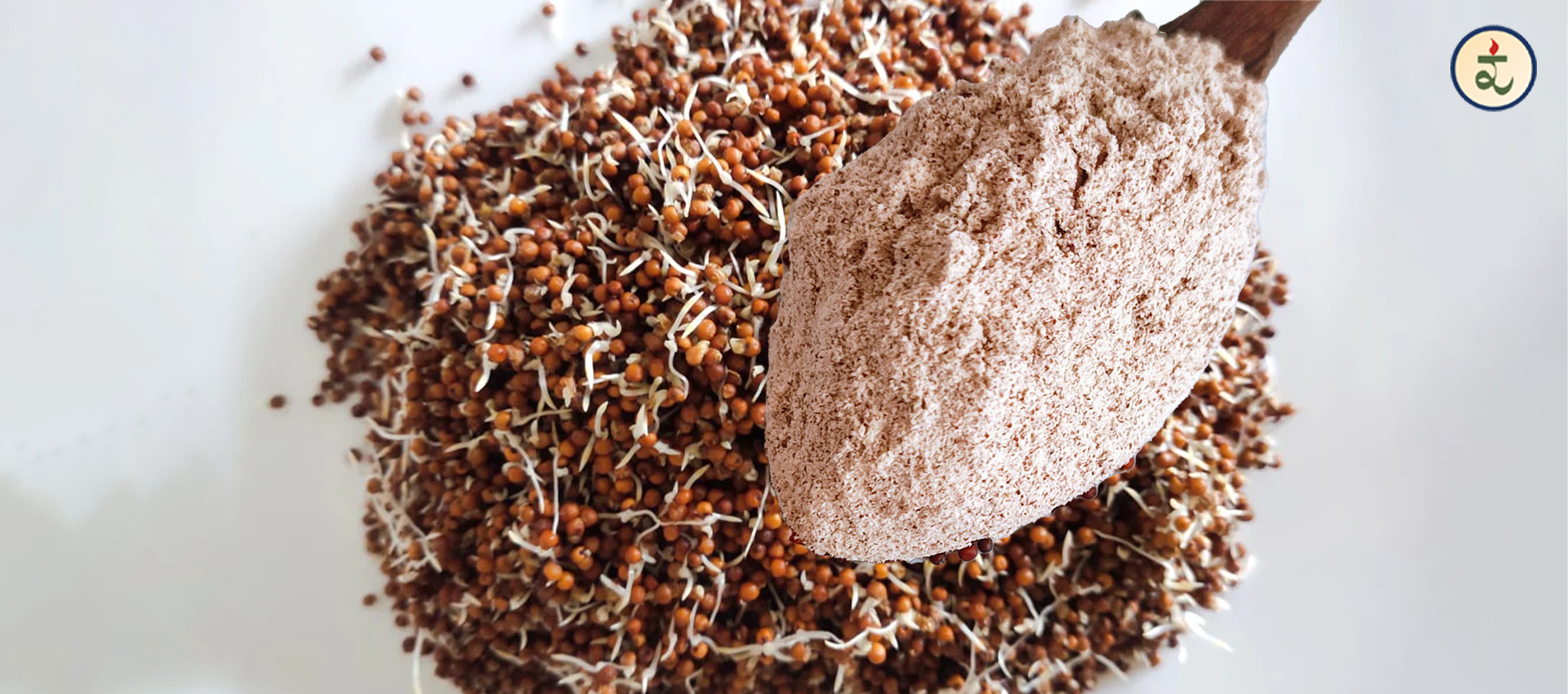
Sprouted ragi flour is rapidly gaining popularity in the health food community as a superfood packed with essential nutrients. Derived from finger millet (ragi), this flour is not just a gluten-free alternative; it offers a multitude of health benefits that can enhance your diet. Let’s explore why you should consider adding sprouted ragi flour to your pantry!
Sprouted ragi flour is made from ragi grains that have undergone a germination process. This process increases nutrient availability and enhances digestibility, making it a powerful ingredient in healthy cooking. Ragi is rich in calcium, iron, and fiber, making it an excellent choice for health-conscious individuals.
Rich in Calcium:
One of the standout features of sprouted ragi flour is its high calcium content, crucial for bone health and preventing osteoporosis. It’s an excellent option for those looking to boost their calcium intake naturally.
High in Iron:
Sprouted ragi is an excellent source of iron, essential for maintaining healthy hemoglobin levels and preventing anemia. Its bioavailable form makes it easier for the body to absorb iron effectively.
Good Source of Protein:
With a notable amount of plant-based protein, sprouted ragi flour supports muscle growth and repair, making it ideal for athletes and fitness enthusiasts.
High Dietary Fiber:
The high fiber content in sprouted ragi flour promotes digestive health, helps manage weight by keeping you full longer, and aids in regulating blood sugar levels.
Low Glycemic Index:
Thanks to its low glycemic index, sprouted ragi flour is a smart choice for individuals with diabetes. It helps stabilize blood sugar levels and reduces the risk of insulin spikes.
Naturally Gluten-Free:
For those with gluten intolerance or celiac disease, sprouted ragi flour is a safe and nutritious alternative to wheat flour, making it perfect for gluten-free diets.
Strengthens Bones:
The high calcium and phosphorus levels in sprouted ragi flour contribute to stronger bones and teeth, making it a vital addition to the diet of children and older adults.
Promotes Heart Health:
The presence of healthy fats and fiber in sprouted ragi flour helps lower cholesterol levels, thereby reducing the risk of heart disease.
Supports Weight Loss:
With its ability to promote satiety, sprouted ragi flour can be an effective tool for those looking to manage or lose weight.
Boosts Energy:
The complex carbohydrates in sprouted ragi flour provide a sustained source of energy, making it a great option for pre- or post-workout meals.
Enhances Digestive Health:
The fiber-rich profile of sprouted ragi flour aids in digestion, prevents constipation, and promotes overall gut health.
Incorporating sprouted ragi flour into your meals is easy and versatile. Here are some delicious ideas:
Nutritious Porridge: Cook sprouted ragi flour with milk or water, and top with fresh fruits, nuts, and a drizzle of honey for a wholesome breakfast.
Healthy Flatbreads: Use sprouted ragi flour to make gluten-free rotis or dosa, a delicious Indian pancake that pairs well with various fillings.
Baked Goods: Substitute regular flour with sprouted ragi flour in muffins, cookies, or breads for a nutritious twist on your favorite recipes.
Smoothie Boost: Add a spoonful of sprouted ragi flour to your smoothies for an extra dose of nutrients without compromising flavor.
Sprouted ragi flour is more than just a gluten-free alternative; it’s a nutrient-dense superfood that offers a wealth of health benefits. From its high calcium and iron content to its fiber-rich profile, sprouted ragi flour can play a crucial role in enhancing your overall health and wellness. By adding sprouted ragi flour to your meals, you can enjoy a tasty, nutritious boost that aligns with a healthy lifestyle. Discover the benefits of this ancient grain today, and take your culinary creations to the next level!
Moon Cycle Fasting: Benefits, How to Fast & My One-Day Fasting Meal Plan
December 18th, 2025Small Investments, Bigger Leaps: Driving a Sustainable Future
December 9th, 2025